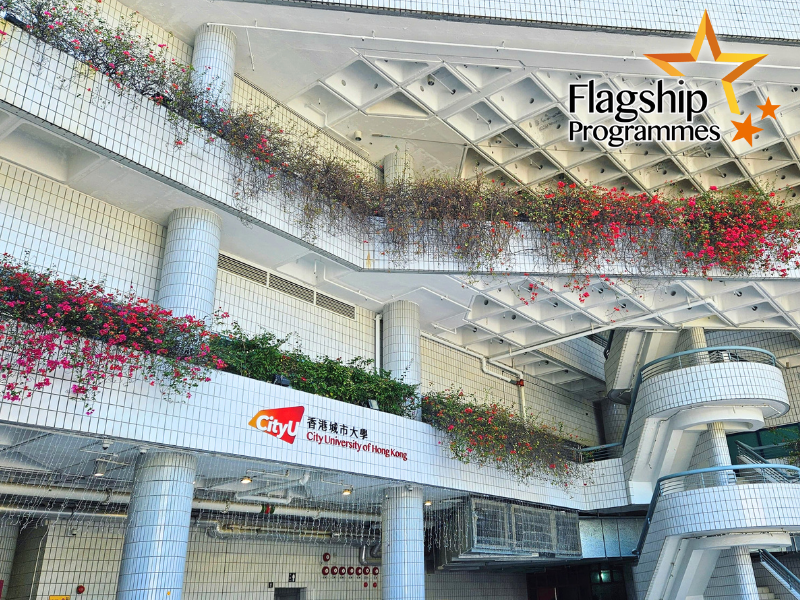BSc Architecture and Surveying

1707A
Local Places:
87(For First Year and Advanced Standing I Entries; Tentative)*
14 (For Senior Year Entry; Tentative)
Non-Local Places
(For Overall Direct Applications):
Around 400
2 years (For Advanced Standing II Entry)
* for JUPAS and non-JUPAS admissions
Both Architecture and Surveying nurtures professionals to become the gatekeepers of built facilities.
Architects are professionals to support Hong Kong's move to a knowledge-based economy and ensure its built environment quality befits its world-class city status. The stream curriculum aims to offer well-balanced teaching and learning with an emphasis on the technological aspects of architectural design and construction. It is designed to equip participants with the concept of full integration between architectural studies with other disciplines that produce the built environment, including building services and civil engineering, property development, surveying, property management, landscape architecture and urban planning.
Themes of Study
- Architecture studio/ project
- Technology – Technical and Environmental
- Communication
- Architecture History and Societal
- Professional Practice
Surveyors are always regarded by the general public as building economists, contract advisors, doctors and managers. The duties of quantity surveyors are to ensure a construction project is within budget and free of unnecessary contractual risks. As for the building surveyors, they uphold the standards of the building regulations by inspecting and approving the building design, examine the safety performance of existing buildings, etc. Surveyors’ legal, economic and technical knowledge in construction make them very sought after for managing a project.
Themes of Study
- Construction law and dispute resolution
- Construction economics
- Project management
- Construction technology
- Building regulations and control
- Building inspection
Entrance Requirements for Direct/Non-JUPAS Applicants
To be considered for admission, you must satisfy the General Entrance Requirements and the following major-specific entrance requirements:
- level 3 or above in HKDSE Mathematics;
- grade C or above in GCE A Level Mathematics;
- subject score of 4 or above in the IB Mathematics subject group; OR
- other qualifications equivalent to any one of the above and approved by the University.
For details of the programme’s curriculum structure, please visit the ‘Undergraduate Catalogue’.
Architecture Stream: We aim to provide a basis for continuing professional development and encourage professional specialization and higher academic study. This major is designed to prepare graduates for a multidisciplinary professional architectural practice by equipping them with a deep understanding of diverse architectural knowledge and a command of technology and integration that will enable them to serve the building industry as architects or other professionals. Graduates will become the driving force behind innovative and creative architectural designs that reflect a balance and integration of design and technology.
Surveying Stream: We aim to provide students with the necessary skills and knowledge to i) participate in real estate and infrastructure developments, ii) analyse building development proposals, iii) appraise contemporary building science and engineering techniques, iv) advise on appropriate means of procurement, v) pursue financial control of construction projects and vi) apply a multi-disciplinary approach to the management of construction processes.
The construction industry has been one of the major drivers of the economies of Hong Kong and mainland China. This trend is expected to continue in view of recent major infrastructure developments in Hong Kong.
Architecture Stream: This major aims to provide students with a sound professional and technological foundation to pursue higher professional degree studies. Given the fast pace of urbanization in the Chinese mainland and the rest of Asia, millions of people will move to cities in the coming decades. Constructing new towns and restoring old towns is an immense task. The number of architectural professionals in the Chinese mainland and throughout Asia is far from sufficient to meet the increasing social demand and expected growth as the economy improves and the property market recovers.
Surveying Stream: Surveyors will find career opportunities in many areas including real-estate development, construction, building economics, law, contracts, design, maintenance, project and facilities management and finance.
Graduates of both Surveying and Architecture streams are expected to be in high demand.
Architecture Stream:
The courses in the curriculum are built around five themes:
- Architecture Studio/ Project
- Technology – Technical and Environmental
- Communication
- Architecture History and Societal
- Professional Practice
The curriculum is structured around the Architectural Design studio sequence and supplemented by a broad spectrum of courses covering the subject areas.
The first two Architectural Design studios seek to strengthen your overall grasp of the understanding of space design and site responses. The next two seek to allow students to explore an integrated design for a building typology and responses of architecture to urbanism, respectively. The final year comprises a Final Year Design Research Project, which enables students to integrate their knowledge and skills acquired so far, into exploring a topic of interest selected by themselves, resulting in a related architectural proposition. This takes place under the supervision of an academic staff member.
Surveying Stream:
- Technology: Construction Methods, Building Design and Appraisal, Building Science and Engineering, Materials and Products, Energy Utilisation, Fire Safety, Building Services, Building Structures and Maintenance Technology.
- Communications: Information Systems, Professional Practice and Language.
- Economics: Tendering Strategies, Life Cycle Costing, Budgets, Development Appraisal, Measurement and Valuation of Construction Work.
- Law: Hong Kong Legal System, Law of Contract, Tort and Property, Construction Contracts, Building and Planning Control.
- Management: Principles of Management, Supervision, Organisation, Planning, Decision-Making, Property and Project Management and Computer Applications.
The College of Engineering and the Department offer work placement opportunities through internship schemes that provide students with full-time job attachments to firms not only in Hong Kong, but also in the PRC and overseas. Through such placements, students will:
- gain solid experience in a real-life work environment;
- develop problem-solving abilities and interpersonal skills;
- learn the right attitudes towards work and professionalism; and
- broaden their experience and enhance their employability.
For details, please visit the College’s Co-operative Education website.
Furthermore, to help students to broaden their educational horizons, gain language experience and enhance their awareness of different cultures, the Department, College and University offer a number of credit-bearing exchange programmes with various partner institutions around the world including universities in Australia, Canada, Europe, the US and the Asia-Pacific region.
For details, please visit the University’s outbound exchange programme website.
The Architecture Stream will seek accreditation by the Hong Kong Institute of Architects and Architects Registration Board in 2027. The former architecture programme - Bachelor of Science in Architectural Studies was accredited since 2014.
Surveying Stream:
1. This Major (Surveying Stream) is accredited by:
- The Royal Institution of Chartered Surveyors (RICS) in the form of partnership
- The Hong Kong Institute of Surveyors (HKIS)
2. Graduates who are going to apply for entry to the APC scheme of Building Surveying Division (BSD) and Quantity Surveying Division (QSD) of The Hong Kong Institute of Surveyors (HKIS) have to complete the following courses:
The HKIS QSD:
- CA2126 Measurement of Building Works
- CA3214 Construction Economics
- CA4229 Land Use Planning & Applied Valuation
- CA4320 Cost Management of Building and Engineering Works
The HKIS BSD:
- CA4229 Land Use Planning & Applied Valuation (for 2017 intake onward)
- CA4623 Maintenance Technology and Management
- 100% of our graduates find jobs in related professional fields within three months of graduation.
- This major participants in an Industrial Attachment Scheme that offers students the opportunity to gain practical industrial experience.
- Under the Industrial Mentoring Scheme (Surveying), students have the opportunity to obtain advice from industrial mentors during their final two years of study.
+852 3442 7609
On a selective basis
- November 2024 to July 2025
- Group and/or individual interviews
- English

